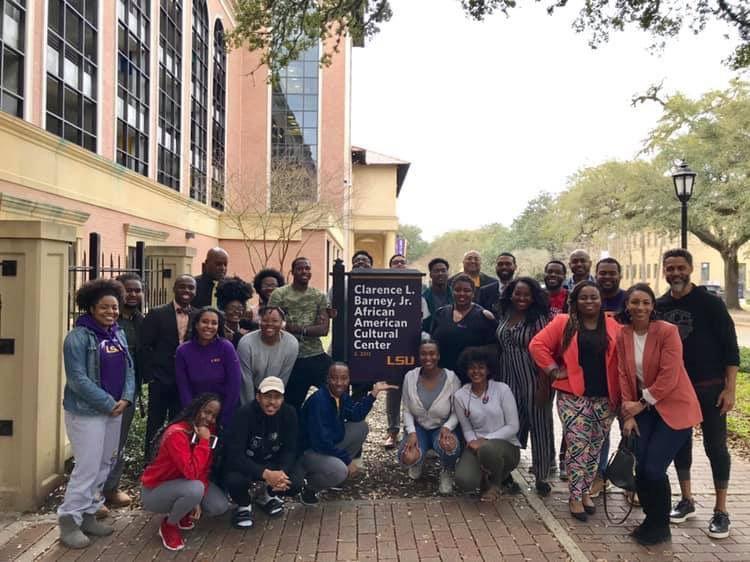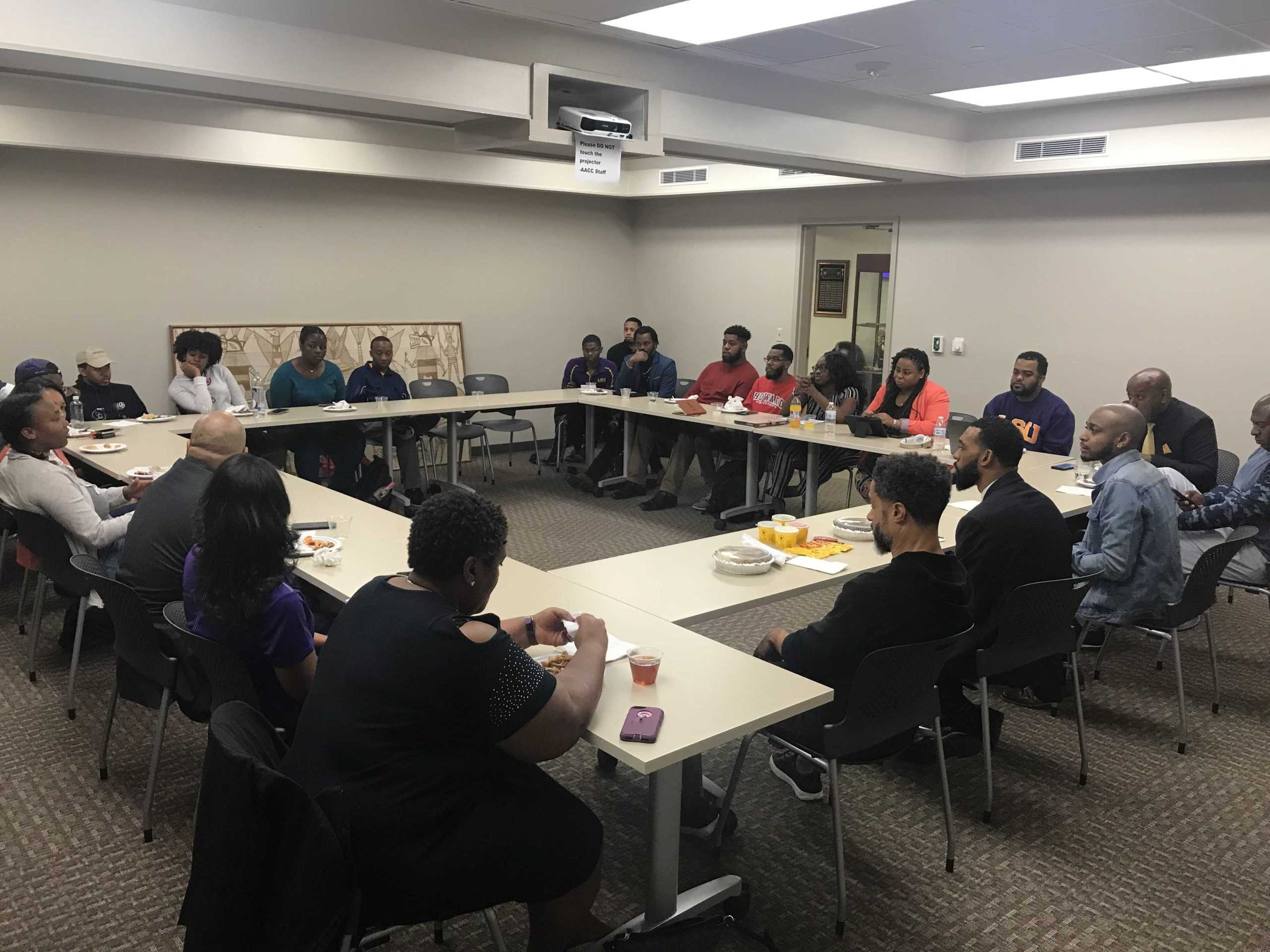“Black Migrations: Past Treasures and Future Endeavors” was chosen as the University’s theme for Black History Month this year, and it carries a personal meaning for marketing junior Dee Scott and biology freshman Quentin Spikes, two members of the Black History Month Committee.
For Scott personally, the theme is referencing the similarities between social issues in the ‘60s and the social issues today.
“It’s about bridging the gap between the Civil Rights Movement and the Black Lives’ Matter movement, and how they’re not so different,” Scott said.
Spikes said celebrating Black History Month holds a different meaning for him in college than it did in high school.
“For me, it’s a continuation of our history. A lot of stuff happened in our past, and a lot of things are happening right now,” Spikes said. “It means something way more in college than it used to. In high school, I used to just go to a parade. Now that I’m in college, I really want people to gain something from it and learn about the culture.”
The Association for the Study of African American Life and History, or the ASALH, officially decided on Black Migrations for its national theme, so it was important to the committee to honor the spirit of that theme in the University’s celebration. The ASALH chose its theme to “emphasize the movement of people of African descent to new destinations and subsequently to new social realities,” according to its website. The focus was mainly placed on the 20th century to current social issues.
The University’s theme combines the ASALH’s theme of migration with the idea of generations of black leaders. Scott said that one of the team members suggested “Past Treasures and Future Endeavors” at the first meeting.
Some of the University’s celebration highlights included annual events such as the Mr. and Miss Imani Pageant and African American Cultural Center jazz brunch, as well as new events such as the barbershop series, an open forum for black men that took place in the LSU Student Union. Spikes, who planned the event, said it was his personal favorite.
Other notable events included the NAACP Image Awards, Sankofa Poetry and Art Night and the Knowledge is Black series.
Another important aspect the committee wanted to convey was the importance of unsung heroes within the black community. Scott said that one of her personal heroes was Claudette Colvin, a woman who was arrested in 1955, nine months before Rosa Parks, for refusing to give up her seat to a white woman on the bus. Claudette was also 15 years old and pregnant at the time, and the NAACP reportedly did not think that a pregnant teenager would be a good representative for the Civil Rights’ movement.
Scott also noted that a key difference between the two was Parks’ lighter complexion.
“For me, it’s just a reminder that the leaders aren’t always at the forefront,” Scott said.
Spikes, as a biology tudent, appreciates Henrietta Lacks as his unsung hero. Lacks died of cervical cancer in 1951, but her cells were later used by scientists to start the immortal HeLa cell line. HeLa cells are considered immortal because they continued to divide outside of the body. Since Lacks’ death, these immortal cells have contributed to numerous scientific and medical discoveries. However, her family has never received any compensation.
Scott and Spikes said they hope University students can learn more about Colvin, Lacks and other lesser known black historical figures.
“In high school, you’re always taught about the white heroes,” Spikes said. “You never talk about the black heroes, beyond Martin Luther King Jr. and Rosa Parks.”
Scott commented that she didn’t have a clear understanding of who Malcolm X was before she came to college, and has appreciated the many resources the University has to educate students about black history. She was amazed to see the University has a course offering entitled Religious Thought of Martin Luther King Jr. and Malcolm X, where they spend an entire semester studying the philosophies of both leaders. Although the University has made efforts to educate students on black history, Scott would still like to see improvements in the community as a whole.
“As a community, we need to do better about going beyond the surface and talking about the heroes who aren’t always talked about,” Scott said. Relating back to the black migration theme, Scott also said that their has been a continuation of growth in the meaning of Black History Month, and that recent injustices have brought about a new version of Civil Rights’ leaders.
Graduate Assistant Franklin Soares thinks it’s important for students to realize the University can support students through their individual black experiences, which can be greatly varied.
“At the end of the day, being black for every individual is different,” Soares said, citing queer black students, black Latinx students and black veterans as examples. “We want to support them here at LSU so they can know they’re wanted here and they can make it wherever they want to go.”
LSU committee members reflect on Black History Month
By Anna Jones
February 28, 2019
The Black History Month Committee stands outside the Clarence L. Barney, Jr. African American Cultural Center.
More to Discover










